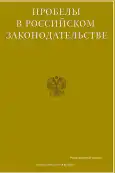On The Impact of Cyberterrorism on the National Security of the Russian Federation in Modern Conditions
- Authors: Zhukov A.Z.1
-
Affiliations:
- North Caucasus Institute for Advanced Studies (branch) of the Krasnodar University of the Ministry of Internal Affairs of Russia
- Issue: Vol 15, No 5 (2022)
- Pages: 91-95
- Section: Articles
- URL: https://bakhtiniada.ru/2072-3164/article/view/147596
- ID: 147596
Cite item
Abstract
The article examines the impact of cyberterrorism on the national security of the Russian Federation in modern conditions. Issues of ensuring national security in difficult geopolitical conditions are one of the highest priorities in the framework of the state policy of the Russian Federation. The development of information technologies is the most important condition for the development of a modern state, however, in addition to positive trends, we also observe a number of negative consequences. One of these consequences is the emergence of a new form of terrorism - information terrorism (cyberterrorism). Information terrorism is a problem not only of a local scale, but to a greater extent is of a global nature. In many ways, it is the global nature of this crime, the lack of geographical boundaries that complicate the fight against cyberterrorism. An effective fight against information terrorism cannot be carried out by a separate state. It is for this reason that active cooperation is needed to solve this problem of all countries. The impact of cyber threats on the national security of the state is obvious, since the actions of terrorists are aimed at destabilizing the political and economic situation in the country. The objectives of the study are to assess the impact of information terrorism on the level of national security of the state. An assessment of the prospects for combating cyberterrorism is also important, especially in terms of determining the vectors for the implementation of the fight. An analysis of possible scenarios for the development of the situation in the fight against cyberterrorism will make it possible to determine the list of the most effective methods of combating information terrorism.Conclusions: The ongoing programs for the digitalization of all spheres of life of society increase the degree of influence of cyberterrorism on the national security of the Russian Federation. The effectiveness of the fight against information terrorism depends on a number of factors: the level of cooperation with other countries and international organizations; the level of legislative regulation; development of scientific research in the field of information security; training of high-level specialists in the field of information security. Only the complex application of all these measures will reduce the level of crimes of this level and the degree of their impact on the national security of the Russian Federation.
Full Text
##article.viewOnOriginalSite##About the authors
Azamat Zaurbekovich Zhukov
North Caucasus Institute for Advanced Studies (branch) of the Krasnodar University of the Ministry of Internal Affairs of Russia
Email: zhukov_azamat@mail.ru
Cand.Sci.(Techn.), Senior Lecturer of the Department of Activities of Internal Affairs Bodies in Special Conditions Nalchik, Russia
References
- Decree of the President of the Russian Federation of July 2, 2021 N 400 "On the National Security Strategy of the Russian Federation".
- Balaeva D.R., Zhukov A.Z. Improving state policy in the field of information counteraction to terrorism // Gaps in Russian legislation. 2021. V. 14. No. 4. S. 53-58.
- Zhukov A.Z., Ingushev Ch.Kh., Bitov A.A. Information security as an element of the national security of the Russian Federation // Gaps in Russian legislation. 2021. V. 17. No. 1. S. 278.
- Parkhitko N.P., Pantaleva N.S. Cyberterrorism and Cyber-Extremism as Modern Threats to National and International Security // Legal Science . - 2019. - No. 3. - S. 47-50.
- Trofimova D.N. Cybercrime in the Russian Federation: ways of prevention // Young scientist. - 2020. - No. 15 (305). - S. 259-261.
Supplementary files








